EU referendum: David Cameron should spell it out. He wants a two-speed Europe
The climate is ripe for the PM to do a deal, but he needs to acknowledge a few realities and do some reaching out


This week, or so we are told, the Prime Minister will set out his Christmas list of EU reforms to the president of the European Council, Donald Tusk. A broad agreement on the UK’s renegotiation package is envisaged at the December summit of European leaders. There will be battles and setbacks in the weeks to come, but there are reasons to think a deal can be found.
Many in continental Europe strongly agree with David Cameron that the European Union of today is not fit for purpose and is in need of fundamental reform. Most accept that the direction of travel has shifted towards some form of “two-speed Europe”, broadly based around eurozone “ins” and “outs”. And clarifying these two types of membership would surely be progress, compared with the chaotic multi-speed, hotchpotch EU of today. Maybe it is time for Cameron to be explicit and use the expression “two-speed”.
There is growing acknowledgement that eurozone countries must integrate further, if the European economy is to recover and fulfil its potential. This is in the interests of Britain, too. Britain wants no part in further European integration, or certainly not for now. If “ever closer union” is not right for the British people any longer, so be it, but the British government must also appreciate that this means they can no longer block those EU members who wish to integrate further. There are many questions about how the notion of a two-speed Europe can be delivered in practice, but we do know that it will require a revision of the existing treaties.

One of the most challenging areas in which the UK will seek reform relates to free movement and social security co-ordination. Changes to the underlying principle of free movement of labour would be a challenge to one of the key themes of the single market and will be firmly resisted by other EU countries and the European Parliament, but it should be possible to reach agreement over reforms to Europe’s social security rules. In a number of recent rulings, the European Court of Justice has already clarified that the right to free movement for work does not necessarily equate to a right to claim benefits. Building on these court rulings, the European Commission is expected to propose new legislation reviewing Europe’s existing migrant benefit rules in December.
These will be delicate discussions, but here, too, the UK will find common ground – as long as it engages more closely with MEPs, who have the power to amend and approve changes in this area. Sooner or later, David Cameron should accept the invitation he has received from the European Parliament to come and “put the case” for the reforms he seeks in a transparent and democratic manner.
George Osborne is right to suggest that the EU should continue to focus on better regulation. In recent years, in part thanks to efforts by the UK, there is a growing acknowledgement by the European Commission that “less is more”, and much has already been achieved. The Commission legislates less, and existing and new legislation is subject to much greater scrutiny. These are important steps and they deserve recognition in the UK.
Many will agree with the UK that the Commission has been far too timid in proposing measures to open up our vast single market. The time is ripe for bold new legislation, which must be fast-tracked, to open up our fractured European markets, particularly in the digital, energy and telecoms sectors. Jonathan Hill, the British commissioner, has worked to sow the seeds of a capital markets union – the pace of this must also quicken. In his letter this week, Cameron should push for ambitious new legislation to complete the single market. It is not surprising that, of the 19 largest internet companies in the world, 10 are located in the US and nine in Asia. The 10 largest hi-tech companies are also American or Asian. To catch up, Europe must take a radical leap to modernise the single market. It is also vital that Britain continues to drive an ambitious EU global trade agenda. The Commission must move quickly to conclude newly announced trade negotiations with Australia, New Zealand and Asean. Britain will have an important role in driving these forward, as British officials are now doing with the EU-US trade agreement.
Perhaps the biggest hurdle Cameron and Osborne will face is the absence of a process to change the EU treaties. Lawyers in Brussels are no doubt hard at work trying to find a way to ensure that, at Cameron’s insistence, any deal is legally binding and “irreversible”. But, as hard as they may try, it is simply not in the gift of civil servants in Brussels to deliver a legally binding promise to revise the postwar European treaties, before a formal process of revision has begun. There is talk of the British government seeking an EU-UK treaty, to be registered at the UN and incorporated into the EU treaties after 2017. But this would not be legally binding on the EU as a whole.
There has to be some treaty change, though, whether driven by Britain or by the eurozone countries’ need to be better integrated. But this has been ruled out because Angela Merkel and François Hollande won’t consider it until 2017, after their respective national elections (way beyond Cameron’s referendum deadline).
So, to increase the credibility of the deal, Cameron must follow another path. He has to push now for an agreement between European leaders that guarantees a timetable and a process for the opening of negotiations for treaty change in early 2017. This would require European leaders to commit their successors (if not themselves, or their electorates, who must ratify any treaty changes), but this is an issue that can’t be ducked. It could be incorporated into any agreement and would add credibility to Cameron’s renegotiation, while giving other EU countries and financial markets certainty that deeper fiscal, economic and political integration in the eurozone will be delivered. That, surely, would suit everyone.
Guy Verhofstadt heads the Alliance of Liberals and Democrats in the European Parliament and is the former Prime Minister of Belgium




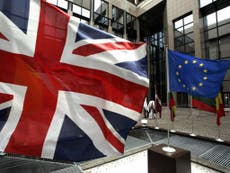
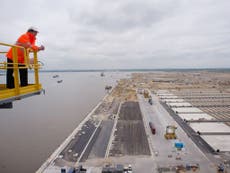
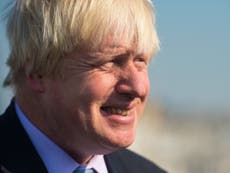
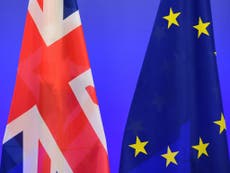

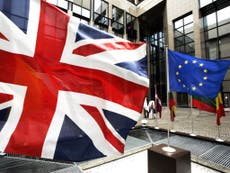

Join our commenting forum
Join thought-provoking conversations, follow other Independent readers and see their replies